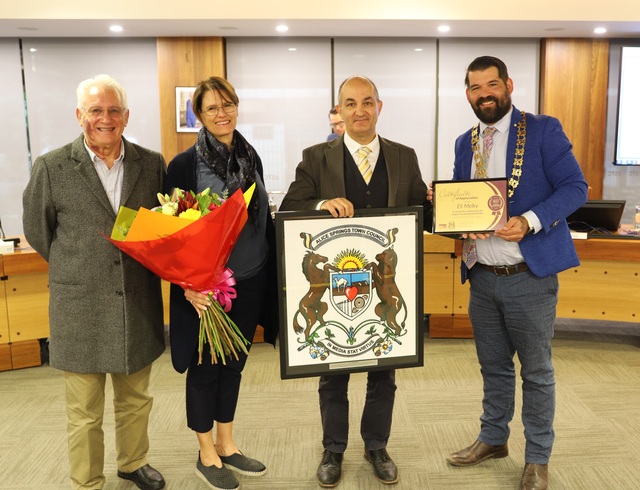An interview with Patrick Murphy, Director Works and Technical Services, Boonah Shire Council, Queensland
As a board member of the Institute of Public Works Engineering Australia in Queensland, Patrick Murphy is in a good position to discuss the future of engineering in Local Government.
With a Local Government career stretching back to 1984, he has seen a lot of change. He sees the main challenge facing Council’s as being the shortage of technical staff.
Now Director Works and Technical Services at Boonah Council, Patrick Murphy said there is a skills shortage which is particularly acute for smaller and regional Councils. Boonah Shire Council, which is located in South East Queensland, and has a population of 9,000, has been actively encouraging its work experience students from secondary schools to undertake further engineering studies.
One student who undertook work experience with the Council is now working part time for the Council while completing an Advanced Diploma in Engineering. Another employee has flexible hours, so that he can complete engineering degree studies in Brisbane while doing his job. Patrick sees it as a good model for other Councils to follow in order to provide engineering staff.
“It is hard to attract young graduates to rural areas, so we have to look close to home,” he said. The second challenge in Local Government engineering is funding as Councils have to deal with both ageing and new infrastructure with limited budgets. In Boonah, we basically need double the funding for our road network to address the situation and that is just not possible,” he said.
To meet these issues, Boonah is looking closely at alternative strategies to extend the life of infrastructure. Patrick Murphy does not get discouraged by these challenges, he looks forward to every day to his work.
“There is always something different to do and we are contributing significantly to the community” he said.
His work involves constant improvement and taking on new ideas. Patrick completed a Masters of Business Administration seven years ago and actively encourages engineers to do the same. “We have to be clever managers and embrace new ideas,” he said. “It is not only about building things, it is about people and relationships as well. You need the full suite of management and leadership skills to be able to perform this job well.”
In his role at Boonah, Patrick and the engineering team have responsibility for several highly diverse areas. One area is wastewater where Council is incorporating both old and new techniques to meet environmental standards. It is looking at relining sewers and other measures to conserve water. Water supply has been a major concern with storage dams at or below 10 per cent of storage capacity for a number of years.
Roads rebuilding is particularly important in Boonah at this present time.
Another key issue is solid waste where Boonah is currently transferring waste to a bioreactor which converts waste into energy and diverting it from landfill. Council is also looking at better ways to dispose of greenwaste.
Catchment management is another critical issue and as Secretary of the Bremer Catchment Association, a community based organisation and the River Trust Engineer, Patrick is deeply involved in catchment issues.
“We need to look to improving water quality as well as managing flooding – when it rains of course,” he said.
Patrick believes that it is important to be involved with Local Government Associations to share ideas and keep up to date with the latest technologies.







